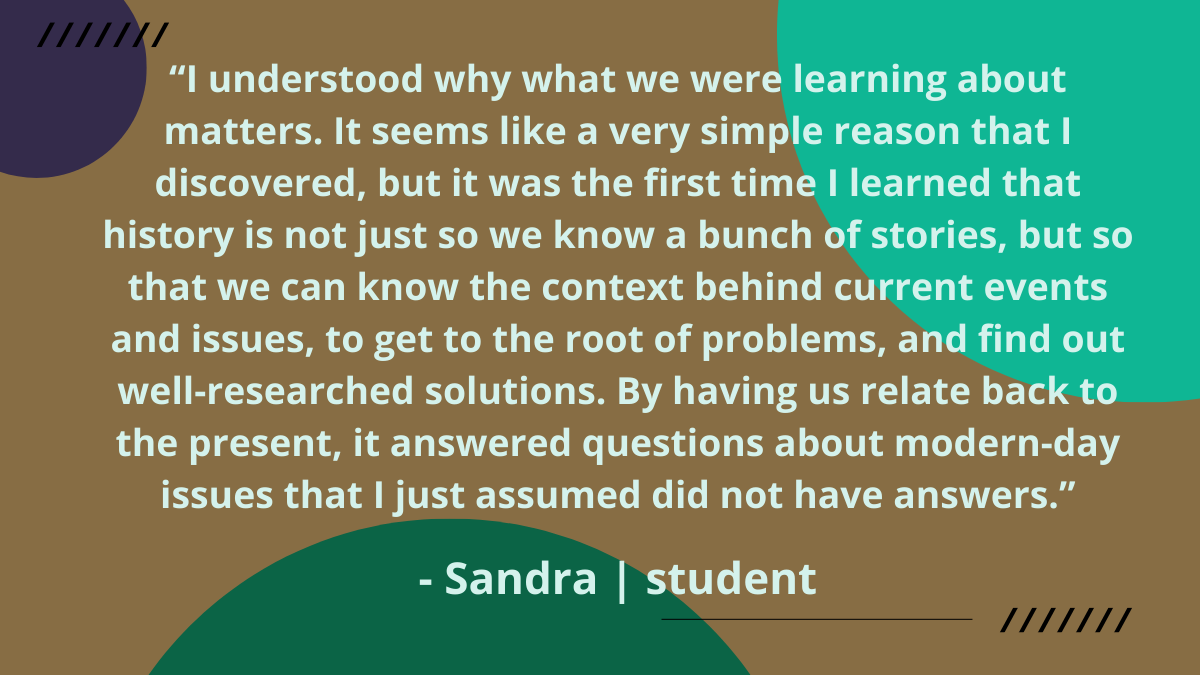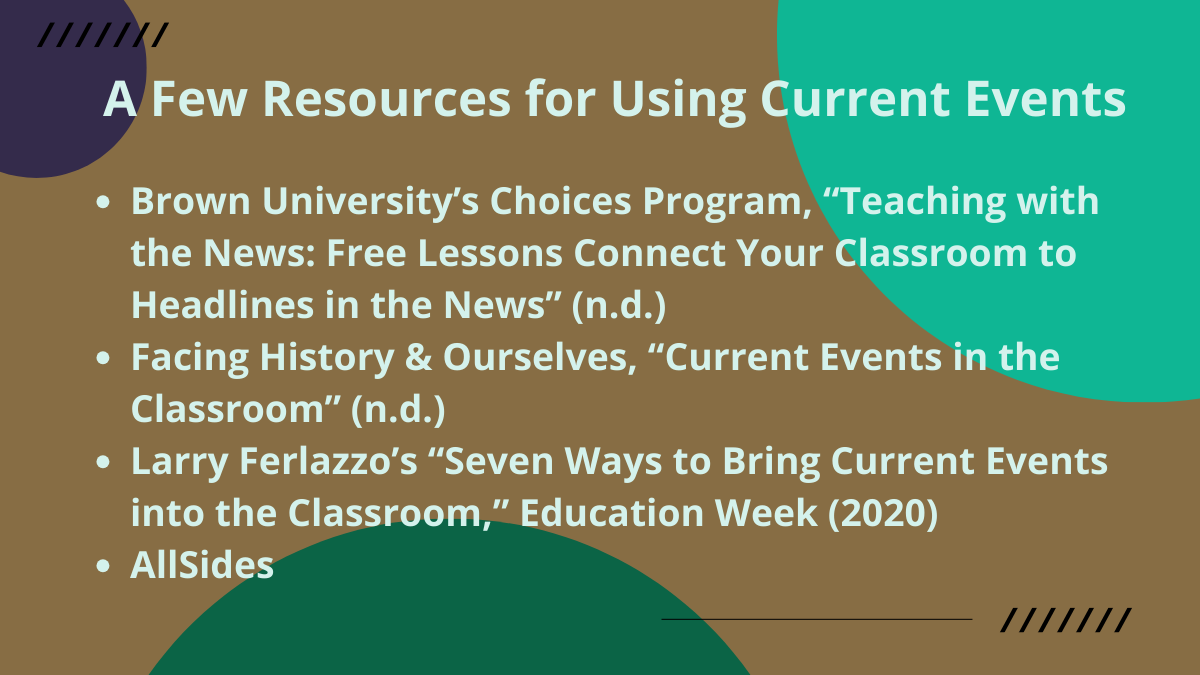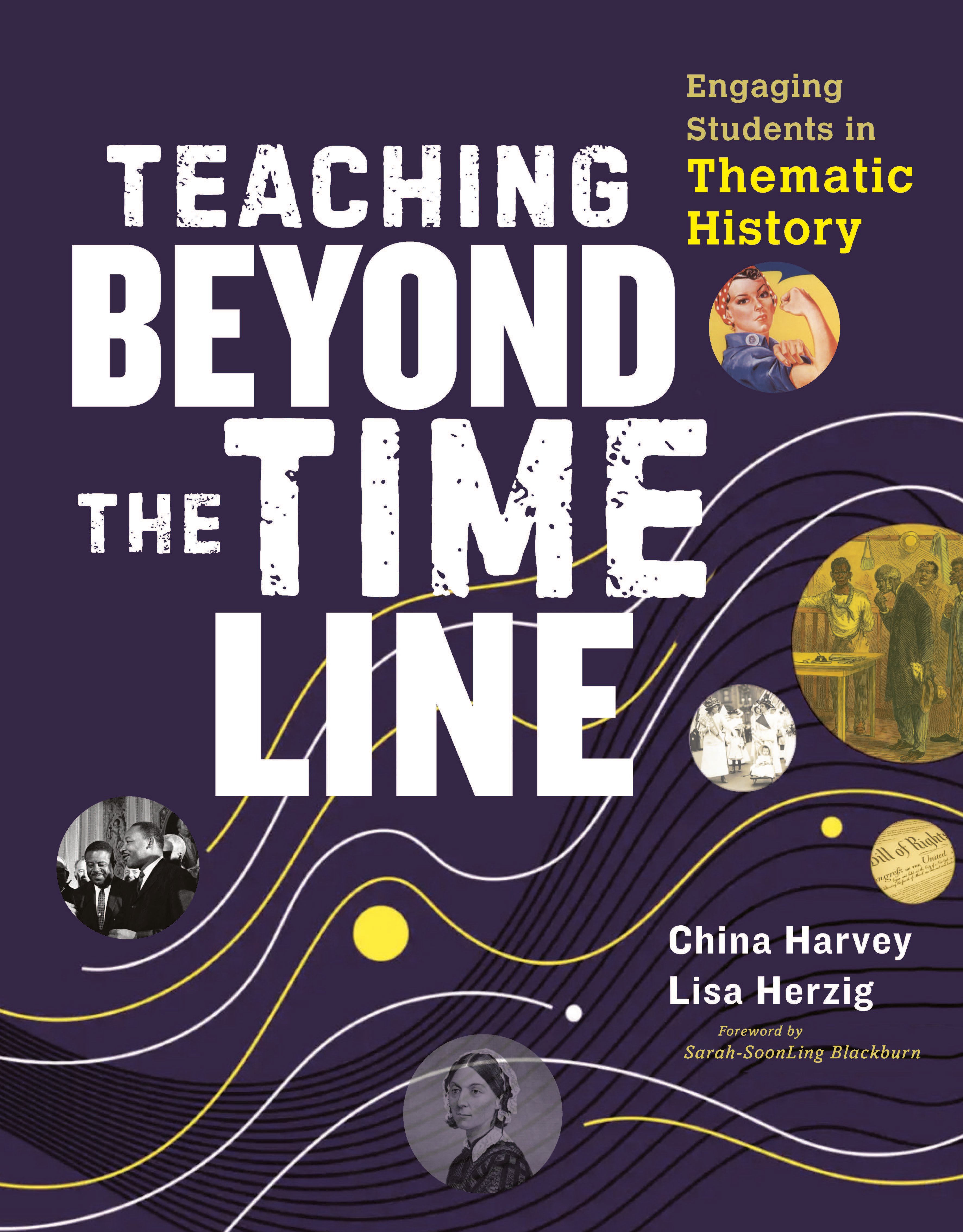
The following is an adapted excerpt from China Harvey and Lisa Herzig’s forthcoming Teaching Beyond the Timeline.
***
History teachers often tell their students they need to understand history to understand the present. We want to make sure we have the best of intentions to help our students see the links between the historical events we discuss in our class and the present day. But it can be challenging in a traditional chronological history course to make these meaningful connections between the past and the present.
With an ever-growing curriculum, that goal becomes less attainable as each year passes. On the other hand, our course must be relevant to our students for them to fully dive into the learning process. Engaging students through current events allows them to see what they are learning in your class is significant to their own lives.
Current Events as Unit Foundation
Many history teachers do include current events as part of their class. Often, students are given an assignment where they must research and present a current issue. These can be very meaningful assignments, but often they have little or no connection to the historical content of that unit. Consider a change in the way current events are included in a history class. What if a particular current event was the foundation for the unit, and the historical content you chose to teach in that unit was meant to support students’ understanding of the current event? For example, consider a potential thematic unit on who has had access to the democratic process throughout U.S. history. The unit could begin with a look at present-day voting laws. In the spring of 2021, the state of Georgia passed a law that many argued would result in widespread disenfranchised communities. And it is not just Georgia. Since 2011, nearly every state in the country introduced a bill that would place more stringent regulations on who could vote (Brennan Center for Justice 2021). If you want your students to understand voting rights in the United States today, a topic they might be particularly interested in as soon-to-be voters, your unit might include an examination of advancements in voting rights such as the Fifteenth and Nineteenth Amendments and the Voting Rights Act of 1965. They could contrast these advancements with limitations some groups faced on their access to the franchise resulting from poll taxes, literacy tests, terrorism at the voting booths, and the 2013 Supreme Court decision of Shelby County v. Holder. Many of these topics would certainly be included in a typical U.S. history course. But imagine how engaged students will be if you start the unit with a topic that is relevant to them, then have them engage in inquiry to uncover the past behind these voting laws.

Thematic Teaching in Action
In our unit on imperialism, we began by analyzing the current debate over Puerto Rican statehood. After evaluating arguments for and against statehood, students used a virtual whiteboard to share their relative knowledge and perspective on the issue. We included sample student posts on the whiteboard and the lesson highlighting the advantages and disadvantages of statehood for Puerto Rico. Once students were engaged in the present-day issue, they were much more invested in learning the historical background related to how the United States acquired the island, and more broadly U.S. imperialism and the Spanish-American War.
Choosing the Rights Tools
To make those connections clear, the teacher must be very intentional with the current events they choose to present and tie the events to the curriculum they are teaching. The sheer number of news outlets and potential current events to frame a unit can be overwhelming and make it difficult to decide which events to include as part of a bigger unit. To help facilitate this, we extensively use the “Teaching with the News” section of Brown University’s Choices Program curriculum and the “Current Events in the Classroom” section of the Facing History & Ourselves website. Both sources regularly publish timely and relevant lessons that will help you bridge the gap between the historical content and present-day developments. They regularly highlight ideas about civic engagement, race, and gender, which can encourage thoughtful dialogue and engage students emotionally and ethically.
A Few Resources for Using Current Events

One of the greatest benefits of teaching history thematically is that it facilitates students’ ability to make connections to current events, which engages students’ interest and helps them see how history is relevant to their own lives.
Teaching Beyond the Timeline released on April 16, 2024.

China Harvey (L) is currently a high school social studies teacher and has served as instructional coach and teacher on special assignment, developing curriculum, leading professional development trainings, and helping to write the course of study for her district’s U.S. History course. She has led professional development workshops for teachers across the country, serving as a Teaching Fellow for Brown University’s The Choices Program, facilitating teacher cohorts for Learning for Justice, and working with elementary teachers and the community on moving beyond the myths surrounding Native American history.
Lisa Herzig (R) teaches high school students in World History, U.S. History, and AP U.S. History. Selected as a teacher on special assignment for her department, she was also a district finalist for “Teacher of the Year” award. Over the span of her career, she has helped create district-wide assessments, worked on curriculum development, and has written courses of study for World and U.S. History.
Related Reading

The following is an adapted excerpt from Teaching Beyond the Timeline by China Harvey and Lisa Herzig.


